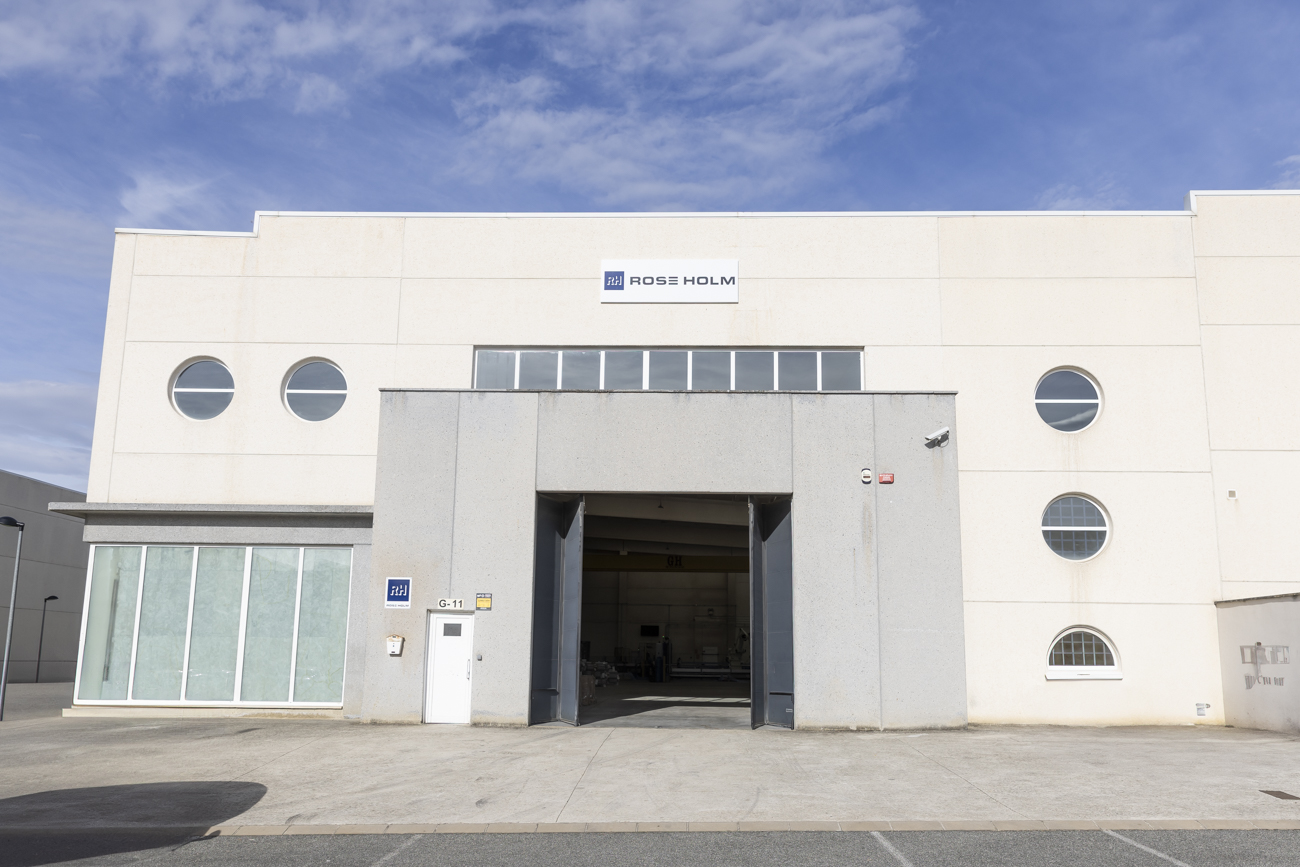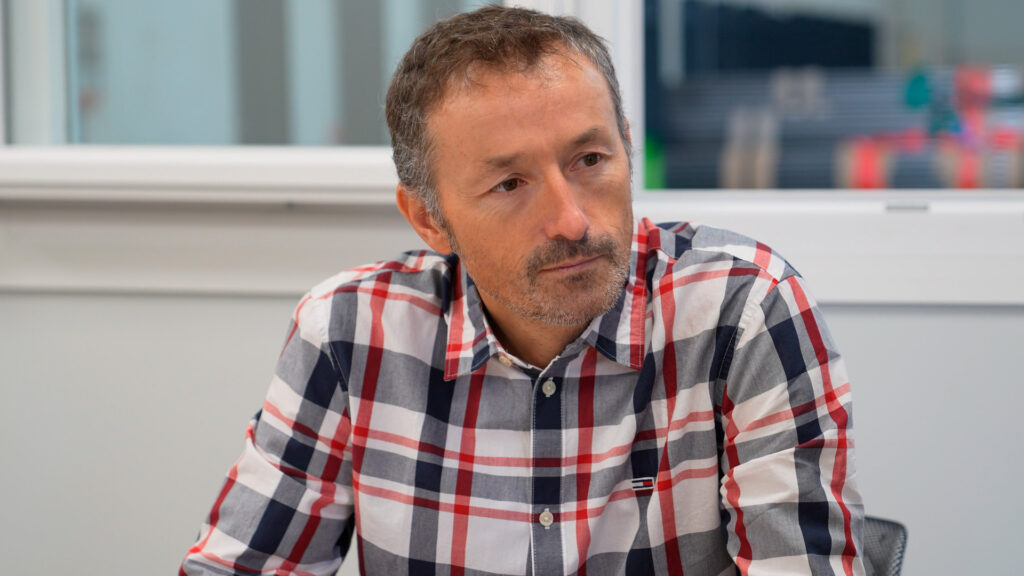
The General Manager for Southern Europe of the Danish family-owned SME-company explains the firm’s recent expansion into the region of Navarra, which he highlights as a cluster within its sector. He also shares some of Rose Holm’s strategies to stabilize production and meet the growing demand of the wind energy market. With a strong focus on automation and collaboration with the region’s industrial ecosystem, Iriarte advocates for more equitable public support to allow European renewable energy companies to compete on equal footing with their Asian counterparts.
The renewable energy sector is the third most important in Navarra after the automotive and agri-food sectors. There are more than 110 companies that account for 10% of regional employment and have a turnover of over 4,500 million euros (5% of the region’s GDP).
The Danish company Rose Holm is the latest to join this ecosystem. It is a family business headed by the third generation, which has sought to serve the Southern European wind power market from Navarre. Its customers are the main manufacturers of wind turbines to which it offers the bolts that guarantee the stability and safety of the windmills used to generate clean energy.
At the head of this delegation is Enrique Iriarte, a professional with whom we talked about his arrival in the region as well as the main challenges and lines of work that he wants to promote from his position as General Manager of Rose Holm for Southern Europe.
I have always had a very transversal profile. Although I started my career in engineering, I quickly discovered my passion for management, planning and production. Throughout my career, I have had the opportunity to work in emerging sectors such as renewable energies, collaborating on innovative projects related to quality, purchasing, battery storage and green hydrogen in companies as different as EHN, Nordex and Acciona Energía.
As I was about to turn 49, I felt the need for a change so that I could dedicate more time to my personal life and, at the same time, continue to contribute to a sector that I am passionate about. That’s why, after my time at Dana, Rose Holm convinced me. Her focus on clean energy and her values aligned with mine made me make the decision. I strongly believe in the importance of contributing to a more sustainable planet for future generations.
There have been several. Firstly, the decision of the parent company to expand internationally in order to be more competitive, serving the Northern European market from Denmark and establishing a new factory in the South. In addition, the facilities offered by the Government of Navarra, especially through Invest in Navarra, the area of Sodena specialized in attracting investment, have been fundamental. I would like to thank the support of Guillermo and Unai, their managers, who have been in constant contact with the owners.
Navarra, on the other hand, is an industrialized region, with a solid supply chain and qualified talent, especially in metal and renewable energies. This community is a real hub for renewables, thanks to the support of the government, with a complete ecosystem of suppliers, customers, universities and training centers, which has also been a determining factor in the decision to set up our factory here.
We are just getting started, and our first objective is to stabilize production and demonstrate that we can achieve the same levels of quality and excellence as our parent company in Denmark. Once we have achieved this milestone, our next step will be to increase our production volume to become a benchmark supplier, responding to the growing demand in the wind power market, both in the construction of new wind farms and in repowering.
We also want to meet the demand for equipment and infrastructure related to heat exchangers, green hydrogen and industry in general. We are specialized in this field and we have the capacity to produce bolts from bolts from metric 16 to metric 100, which allows us to respond to any need that may arise.
It is clear that the renewables sector is in a delicate situation. What we need now is for companies to continue to invest in innovation to be competitive, but this must be accompanied by public support to help balance the market between Europe and China. Currently, tariffs, emissions taxes and other costs faced by European companies are not applied evenly across countries. We are not competing on a level playing field, and that is precisely what we are asking for: fair conditions to be able to maintain an industry in Europe, rather than relying on past rents.
There is always more that can be done, but I must admit that Sodena cares about the companies and has made our path much easier. Thanks to Sodena’s support, we are now fully operational, producing, delivering orders and competing for contracts by 2025.
Currently, we have a small team and our intention is to learn by doing. Starting in November, based on the order backlog for 2025, we plan to add more staff, increasing production shifts and setting up a small structure in quality, logistics and administration, with a total of 8 to 10 people. Since our implementation, I have received many visits and applications, but we are not there yet. I don’t think we have any difficulty in offering stability, future prospects and attractive conditions to attract talent.
We are already members of ENERCLUSTER, because we consider it strategic to be part of the association that brings together companies in the renewable sector. As for other institutions, we do not have that urgency at the moment.
On the other hand, our main competitive advantage lies in the fact that we have a fully automated production process. Steel bars feed the production line, and robots take care of everything until the final product is packed in a wooden box. Each wind turbine requires, on average, about 200 bolts, which equates to approximately 2,000 bolts for a wind farm of ten wind turbines, a weight that would be very difficult to handle manually. Automation is therefore key. Moreover, in our case we have an additional advantage since Navarra has a robust network of automation companies in hardware and software, with whom we are already collaborating.
Taxation is not bad, but I think it could be improved because it reminds me of what happens with the subsidies received by the electric car. I, for example, am a believer in renewables and I believe that Spain could be 100% self-sufficient thanks to this type of energy. What happens with the electric car? Apart from other factors, the aid it receives arrives long after you have made the investment. Something similar happens with taxation. I believe that formulas should be sought to facilitate this aid in advance, of course, with the necessary commitments, agreements and assurances, but before, because if they are behind, we are always late.

